Damla Seckin
Akdeniz University, Turkey
Abstract Title: Access to bariatric surgery in the context of health inequalities and social determinants: A nursing perspective
Biography:
Dr. Damla Seckin is a Research Assistant at Akdeniz University, Faculty of Nursing, Department of Surgical Nursing. She completed her undergraduate and graduate education in nursing. Her research focuses on bariatric surgery nursing, digital health interventions, self-efficacy, and patient education. Dr. Seckin has participated in several national and international research projects and conducted studies on scale adaptation, bibliometric analysis, and e-health-based interventions. She continues her academic work on bariatric surgery, digital transformation in nursing, patient-centered care, and health literacy, aiming to enhance evidence-based practice and interdisciplinary collaboration in healthcare.
Research Interest:
Obesity is a chronic disease strongly influenced by social determinants. Income level, education, gender, age, geographical region, and health insurance status are determining factors in access to bariatric surgery. The literature indicates that disadvantaged groups are less likely to be referred for surgical treatment and that lack of information and stigma limit access. The aim of this review is to identify social inequalities in access to obesity surgery and to highlight the role of nurses in reducing these inequalities. Studies obtained from searches conducted in PubMed, CINAHL, Scopus, and Web of Science databases between 2020 and 2025 were examined within the scope of the research. The included studies reported data on socioeconomic status, health insurance, educational level, gender, and regional differences. In conclusion, social determinants create significant differences in access to surgery. Individuals with low income, low education, and those living in rural areas are significantly less likely to be referred for bariatric surgery. While women perceive surgery more positively, lack of information and stigmatization are more prevalent among men. Addressing health inequalities is possible by strengthening nurses' advocacy, education, and counselling roles. Awareness programs led by nurses could be an essential strategy to support equitable access to obesity surgery.

